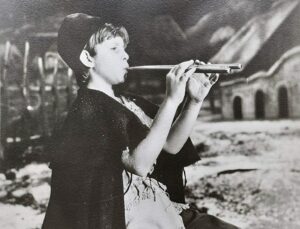Perhaps the most arresting and controversial performance to be seen at the Met to date this season is Régine Crespin’s Carmen, a role she had previously recorded and sung in concert but never before onstage. Crespin’s Carmen is one of inexhaustible fascination and consistent vocal allure. Few would deny the latter, for the soprano seems to have returned to complete vocal health after several years of technical problems, and rarely has Bizet’s music been more seductively phrased or hauntingly colored. And what a pleasure to hear the French text, both sung and spoken, handled with such natural, easy authority!
Dramatically, this was not a Carmen for all tastes. Crespin is a large, strikingly handsome woman, her stage manner invariably graceful and subdued, yet in moments of tension utterly commanding. Best of all, Crespin has worked out a conception of the part that works for her in almost every respect. For the first act and a half this Carmen is nonchalant, vaguely amused by the influence she exercises over men but detached and blasé. When Don Jose hurls her to the floor just before singing his Flower Song, the violent gesture seems to crystallize in Carmen the realization that her ultimate freedom lies in death and that Jose is the means to achieve this goal. From that point until she virtually embraces her lover’s knife, Carmen is transformed into a bitter, taunting, self-destructive woman as she goads Jose to murder – and the instant of death when she reaches out to caress José becomes a moment of almost unbearable pathos. Only the greatest artistry could bring off such an unusual interpretation and Crespin holds one in thrall every instant she is onstage.
On this day in 1944 the Aaron Copland/Martha Graham ballet Appalachian Spring had its premiere in Washington DC.
Birthday anniversaries of conductor Antonino Votto (1896) and soprano Käthe Heidersbach (1897).Happy 76th birthday countertenor and conductor René Jacobs.



